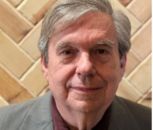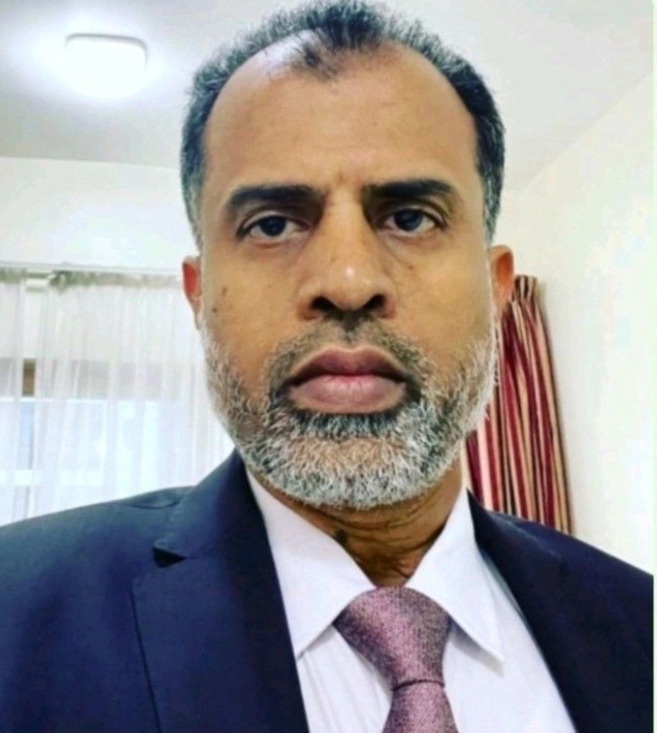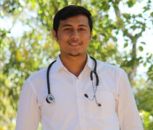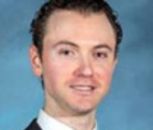Sessions and Tracks
Ayurveda, often referred to as the "Science of Life," is one of the world’s oldest and most comprehensive systems of natural medicine, originating in India more than 5,000 years ago. Rooted in ancient Vedic wisdom, Ayurveda offers a holistic approach to health and well-being by focusing on the balance between the body, mind, and spirit. Central to Ayurvedic philosophy is the concept of three doshas - Vata, Pitta, and Kapha which represent different biological energies that govern physiological and psychological functions in the body. Each person has a unique constitution or Prakriti, determined by the balance of these doshas. An imbalance, or Vikriti, leads to disease or discomfort. Ayurvedic treatment focuses on rebalancing the doshas through diet, herbal remedies, yoga, meditation, massage therapies, and detoxification techniques like Panchakarma. Holistic healing in Ayurveda extends beyond physical wellness. It embraces the interconnectedness of the mind and emotions with the physical body. Practices such as meditation, mantra chanting, and mindfulness are integrated into treatment plan to support mental clarity, emotional stability, and spiritual growth.
Traditional Chinese Medicine (TCM) is a time-honoured system of healing that has been practiced for over 2,500 years. Rooted in ancient Chinese philosophy, TCM views health as a dynamic balance between opposing yet complementary forces known as Yin and Yang, and it emphasizes the harmonious flow of Qi (vital life energy) throughout the body. When Qi flows freely, the body remains healthy; when it is blocked or imbalanced, disease and discomfort can arise. TCM adopts a holistic approach to health, addressing not only physical symptoms but also the mental, emotional, and spiritual well-being of an individual. Its fundamental principles are grounded in observing the patterns of nature and understanding the body as an integrated system. Diagnosis is based on methods such as pulse reading, tongue analysis, and observation of the body’s overall condition. Treatments are highly personalized, focusing on correcting imbalances and promoting self-healing.
Herbal and plant-based medicine represents one of the oldest and most widespread forms of healthcare practiced by civilizations across the globe. Rooted in traditional medical systems such as Ayurveda, Traditional Chinese Medicine (TCM), Unani, Native American healing, and African ethnomedicine, this natural form of therapy utilizes the medicinal properties of plants to prevent and treat a wide range of health conditions. Plants have long been recognized for their healing properties due to their rich content of bioactive compounds, including alkaloids, flavonoids, terpenoids, glycosides, and phenolics. These compounds are known to exhibit anti-inflammatory, antimicrobial, antioxidant, analgesic, adaptogenic, and immune-modulating properties. Herbal medicine works not only by treating specific symptoms but also by supporting the body's natural healing mechanisms and restoring overall balance. Popular herbs such as turmeric, ashwagandha, ginseng, echinacea, ginger, garlic and aloe vera are widely studied and used around the world for various therapeutic purposes.
Homeopathy is a holistic system of medicine founded in the late 18th century by the German physician Dr.Samuel Hahnemann. Based on the fundamental principle of "similia similibus curentur" or "like cures like," homeopathy proposes that a substance capable of producing symptoms in a healthy individual can be used in minute doses to treat similar symptoms in a sick person. This unique therapeutic approach focuses on stimulating the body’s natural healing response rather than suppressing symptoms. At the core of homeopathic practice is the individualization of treatment. Unlike conventional medicine, which often prescribes standardized remedies for diagnosed conditions, homeopathy considers the person as a whole physically, emotionally, and mentally. Homeopathic remedies are prepared through a process of serial dilution and succussion (vigorous shaking), a method known as potentization.
Unani, Siddha and Islamic medicine represent three deeply rooted traditional medical systems that have served as pillars of holistic health in South Asia, the Middle East, and beyond. Unani Medicine, also known as Greco-Arabic medicine, traces its origins to the ancient medical teachings of Hippocrates and Galen, later refined by Persian and Arab scholars such as Avicenna. Central to Unani philosophy is the humoral theory, which maintains that health depends on the balance of four bodily humors - blood (Dam), phelegum (Balgham), yellow bile (Safra), and black bile (sauda). Siddha Medicine is one of the oldest systems of medicine known to humankind, developed by the Tamil sages or siddhars in South India more than 5,000 years ago. Siddha is deeply spiritual and rooted in Dravidian culture, combining alchemy, yogic practices , and herbal science to promote health and longevity. Islamic Medicine, also known as Prophetic medicine, draws from the teachings of the Prophet Muhammad (PBUH) and the contributions of Islamic scholars to medicine during the Islamic Golden Age. It promotes healing through natural means, ethical medical practice, and a strong focus on hygiene, mental well-being, and spiritual health.
Naturopathy and Lifestyle Medicine are holistic healthcare systems that prioritize prevention, natural healing, and the empowerment of individuals in managing their health. Both approaches are rooted in the belief that the body possesses an innate ability to heal itself when supported by proper care, nutrition, and environmental conditions. In a time when chronic diseases such as diabetes, hypertension, obesity, cardiovascular disorders, and mental health conditions are on the rise, these systems offer sustainable, evidence-based solutions that address the underlying causes of illness rather than simply alleviating symptoms. Naturopathy, also known as naturopathic medicine, is a traditional system that combines natural therapies with modern scientific knowledge. Naturopathic treatments typically include a combination of herbal medicine, therapeutic nutrition, physical manipulation, detoxification, hydrotherapy, mind-body practices such as meditation and yoga, and lifestyle counseling.
Integrative and Functional Medicine are progressive healthcare approaches that combine the best of conventional medicine with complementary, evidence-based therapies to address the root causes of illness and promote optimal health. Integrative medicine brings together various therapeutic practices including conventional treatments, nutrition, acupuncture, yoga, herbal medicine, chiropractic care, meditation, and mind-body interventions - in a coordinated way tailored to the individual needs of each patient. Functional Medicine, while aligned with the principles of integrative care, takes a systems-based, biological approach to identify and address the underlying causes of disease. Rather than treating diseases in isolation or focusing solely on symptoms, functional medicine examines the interconnection between body systems and looks for imbalances that disrupt health. It considers factors such as gut microbiome health, hormonal balance, immune function, detoxification capacity, nutritional deficiencies, inflammation, and genetic predispositions.
Yoga, Meditation, and Mind-Body Therapies represent a profound and time-tested dimension of holistic healthcare that emphasizes the intrinsic connection between the mind, body, and spirit in achieving and maintaining optimal well-being. These practices, rooted in ancient traditions and increasingly validated by modern science, have gained global recognition as effective, non-invasive, and integrative tools for enhancing physical health, emotional balance, and psychological resilience. Yoga, which originated over 5,000 years ago in ancient India, is much more than a physical exercise, it is a comprehensive system of self-care that includes physical postures (asanas), breathing techniques (pranayama), ethical principles, and meditative practices aimed at uniting the body and mind. Regular yoga practice has been shown to improve flexibility, strength, cardiovascular function, and respiratory efficiency, while also reducing stress, anxiety, and chronic pain. Mind-body therapies, including biofeedback, guided imagery, hypnotherapy, progressive muscle relaxation, and expressive arts therapies, further expand the repertoire of tools available to support self-healing.
Energy Medicine and Vibrational Healing are emerging fields within holistic healthcare that focus on the body’s energetic systems to promote healing, balance, and well-being. Rooted in ancient healing traditions and supported by growing scientific inquiry, these modalities operate on the principle that all living beings are composed of energy, and that imbalances or disruptions in the body’s energy field can lead to illness or emotional distress. Energy medicine works by detecting and correcting these disturbances, aiming to restore harmony within the physical, mental, emotional, and spiritual layers of the human being. These non-invasive techniques involve the gentle laying of hands or focused intention to channel universal life force energy into the recipient, helping to clear energetic blockages, reduce pain, and accelerate the body’s natural healing processes. Many of these practices are being incorporated into integrative healthcare settings, including hospitals, hospices, and wellness centers, particularly for managing chronic pain, emotional trauma, anxiety, fatigue, and post-surgical recovery.
Indigenous Healing Practices and Ethnomedicine represent some of the oldest and most culturally rich systems of healing in human history. Unlike conventional medicine, which often focuses on the biological aspect of disease, indigenous healing views health as a balance between the physical body, the spiritual world, ancestral forces, and the environment. Illness is often seen not just as a biological dysfunction but as a disruption in one’s relationship with self, others, nature, or the spiritual realm. Indigenous healers including shamans, medicine men and women, herbalists, and spiritual guides play a vital role in restoring this balance through rituals, plant-based remedies, prayers, divination, and other culturally specific practices. Ethnomedicine, a field that studies traditional medical knowledge and systems, offers valuable insight into the diverse ways that cultures understand health, illness, and healing
Traditional Medicine and Public Health intersect in powerful and increasingly relevant ways, particularly in the context of global health challenges, health equity, and sustainable healthcare delivery. Traditional medicine, which encompasses a broad range of ancient medical practices including herbal remedies, spiritual healing, physical therapies, and indigenous systems like Ayurveda, Unani, Traditional Chinese Medicine (TCM), and African ethnomedicine, has been a cornerstone of healthcare for centuries. As public health systems strive to extend universal health coverage, the integration of traditional medicine offers an important, culturally accepted path to reaching underserved populations and promoting preventive health behaviors. Traditional medicine contributes significantly to public health goals, particularly in areas such as maternal and child health, mental health, nutrition, infectious disease control, and chronic disease management.
Pharmacognosy and Ethnopharmacology are interrelated scientific disciplines that explore the discovery, analysis, and development of medicinal substances derived from natural sources, particularly plants, animals, and minerals. Pharmacognosy, one of the oldest branches of pharmaceutical science, focuses on the study of crude drugs obtained from natural origins, emphasizing the botanical, chemical, biochemical, and biological properties of natural substances. It plays a fundamental role in identifying medicinal plants, extracting and characterizing active ingredients, and evaluating their pharmacological effects, safety, and therapeutic potential. The discipline is essential in the drug discovery process, particularly in developing new medicines from natural products. Closely aligned with pharmacognosy, ethnopharmocology is a multidisciplinary field that investigates the traditional uses of medicinal substances by indigenous and local communities.
Regulatory Affairs and Quality Control in Traditional Medicine are critical components in ensuring the safety, efficacy, and global credibility of traditional healing systems such as Ayurveda, Traditional Chinese Medicine (TCM), Unani, Siddha, and other indigenous therapies. As traditional medicine gains increasing popularity worldwide, it becomes essential to establish robust regulatory frameworks and quality assurance mechanisms that protect both public health and cultural heritage. Unlike conventional medicines, traditional formulations are often based on complex mixtures of natural substances, which can vary significantly in composition due to differences in plant species, harvesting methods, processing techniques, and storage conditions. Therefore, ensuring consistency, purity, and therapeutic reliability is a top priority in traditional medicine regulation.
Clinical Trials and Evidence-Based Traditional Medicine represent a transformative intersection between ancient healing wisdom and modern scientific validation. As the global demand for traditional medicine continues to rise driven by public interest in holistic, natural, and culturally resonant healthcare approaches there is a growing need to establish rigorous evidence that supports their safety, efficacy, and therapeutic value. Traditional medicine systems such as Ayurveda, Traditional Chinese Medicine (TCM), Unani, Siddha, and various indigenous practices have long histories of empirical success. Clinical trials serve as a critical bridge in this process, offering structured methodologies to test the effectiveness of traditional remedies, understand their mechanisms of action, and ensure their safety for widespread use.
Holistic Nutrition and Dieeticts in Traditional Systems represent a profound and time-tested approach to food and health, viewing diet not simply as a source of calories or nutrients, but as a vital force that influences the body, mind, and spirit. These systems consider not only what a person eats but also how, when, and why they eat, placing significant importance on digestion, metabolic constitution, seasonal changes, emotional state, and lifestyle. In these traditions, food is regarded as the first medicine, and nutritional therapy is a core component of disease prevention and management. In ayurveda, for instance, the concept of Ahara (diet) is integral to maintaining doshic balance (Vata, Pitta, Kapha). Foods are classified by their taste (rasa), energy (virya), post-digestive effect (vipaka), and influence on consciousness (prabhava).
Spa, Wellness, and Therapeutic Tourism is a rapidly growing segment of the global travel industry that blends health, relaxation, and healing experiences with the pursuit of holistic well-being. Unlike traditional tourism focused on sightseeing or leisure alone, wellness tourism is purpose-driven centered around rejuvenation, preventive care, self-discovery, and medical healing in nurturing environments. Spanning luxury spa retreats, yoga and meditation resorts, herbal healing centers, hot springs, detox programs, Ayurvedic and Traditional Chinese Medicine (TCM) therapies, and integrative health resorts, this sector offers a diverse array of services designed to restore balance to the body, mind, and spirit. Spa tourism, a key component of wellness travel, includes therapeutic treatments aimed at relaxation, beautification, and health enhancement. These services often include massages, hydrotherapy, aromatherapy, facials, body wraps, and thermal baths.
Mental Health and Emotional Healing in Traditional Systems represents a deeply rooted, holistic approach to psychological well-being that predates modern psychiatry by thousands of years. Traditional systems of medicine such as Ayurveda, Traditional Chinese Medicine (TCM), Unani, Siddha, and various indigenous practices have long recognized the intricate connection between the mind, body, spirit, and environment. These systems approach mental health not merely as the absence of illness, but as a dynamic state of balance and inner harmony. Emotional disturbances are often seen as disruptions in vital energies, humoral imbalances, spiritual disconnection, or the result of unresolved trauma, lifestyle stress, and social disharmony. Psychological disorders are categorized based on dosha imbalances - Vata, Pitta, and Kapha and treated with a combination of herbal medicines, dietary changes, detoxification procedures, yoga, meditation and spiritual counseling. Specific herbs like Ashwagandha, Brahmi, and Jatamansi are known for their adaptogenic, calming, and neuroprotective properties.
Innovations and Modern Technology in Traditional Medicine are playing a transformative role in bridging ancient healing systems with contemporary healthcare. As traditional medicine continues to gain global recognition, modern tools such as artificial intelligence, machine learning, telemedicine, and digital health platforms are being leveraged to enhance diagnostic accuracy, treatment delivery, and patient engagement. Technologies like DNA barcoding and HPLC are used to ensure the purity, safety, and standardization of herbal medicines. Mobile applications now offer personalized wellness recommendations based on Ayurvedic or Traditional Chinese Medicine (TCM) principles, making these systems more accessible to the tech-savvy generation.
Women’s Health in Traditional Medicine encompasses a comprehensive, holistic approach that honors the unique physiological, emotional, and spiritual needs of women across every stage of life. Traditional systems such as Ayurveda, Traditional Chinese Medicine (TCM), Unani, Siddha, and various indigenous practices offer time-tested methods for addressing issues specific to women ranging from menstruation and fertility to pregnancy, menopause, and hormonal balance. Traditional medicine also provides supportive care for conditions like PCOS, infertility and menstrual irregularities, postpartum recovery, and emotional imbalances. This session on Women’s Health in Traditional Medicine will explore these ancient practices and their integration into modern women’s healthcare, highlighting their relevance, safety, and efficacy in enhancing lifelong wellness.
Pediatric and Geriatric Traditional Medicine offers age-specific, holistic approaches to health and wellness, focusing on the unique physiological and emotional needs of children and the elderly. Traditional systems such as Ayurveda, Traditional Chinese Medicine (TCM), Unani, Siddha, have long provided gentle yet effective therapies tailored for these vulnerable age groups. In pediatrics, natural remedies, herbal formulations, massage (such as Ayurvedic Abhyanga), and dietary recommendations are used to boost immunity, support digestion, improve sleep, and manage common conditions like colic, teething discomfort, respiratory infections, and skin disorders all while minimizing side effects. For geriatric care, traditional medicine focuses on promoting longevity, maintaining mobility, improving cognitive function, and managing chronic conditions such as arthritis, insomnia, and memory decline.








